If you're new to selling on eBay, you're probably excited to get started and to scale. The last thing that you want to deal with as you ascend to new heights is an interruption in your ability to sell.
With that in mind, keep this list in mind. These eight things can lead eBay to either restrict your selling or to suspend you outright—so as you grow, do your utmost to avoid them.
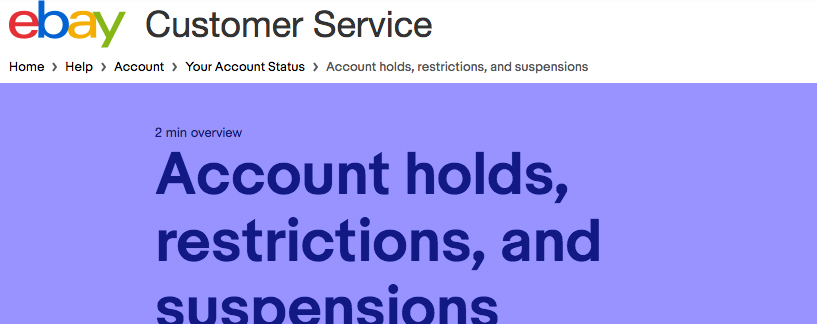
Restrictions and suspensions can halt your growth in its tracks—so learn what to avoid.
Failing to deliver. Your listings are a promise—to deliver a particular item, in a particular condition, within a particular time frame. That's the selling business, after all. Hopefully it goes without saying, but if you fail deliver repeatedly on this fundamental responsibility, your selling will be restricted.
Having problem transactions. eBay can see most of the problems that occur in your transactions—negative feedback, late shipments, late deliveries, refund or exchange requests, and of course complaints to eBay customer service. Accumulate a few of these and your selling will be restricted.
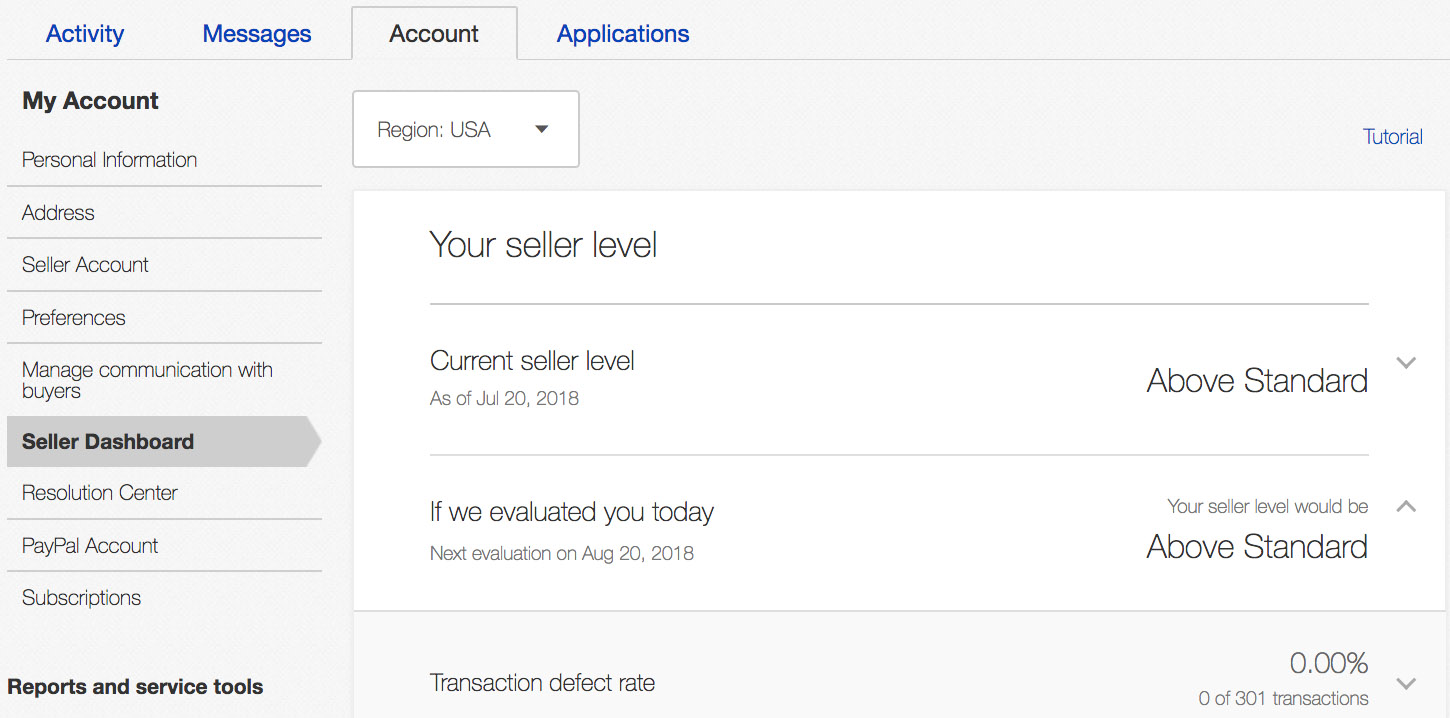
Keep tabs on your seller performance level. If you see it falling, redouble your efforts.
Selling outside of eBay. Sales on eBay are how eBay makes money. That's why it's against the rules to offer an eBay shopper a sale outside of eBay—even if the shopper is the one that makes the request. Do this and your selling will be restricted.
Sharing contact information with shoppers. You're only allowed to to communicate with shoppers using the eBay message system, and you're not allowed to offer them other ways to communicate with you. If you share other contact information—phone numbers, sales floor addresses, email addresses, or non-eBay websites—anywhere on eBay at all—it will be detected and your selling will be restricted.
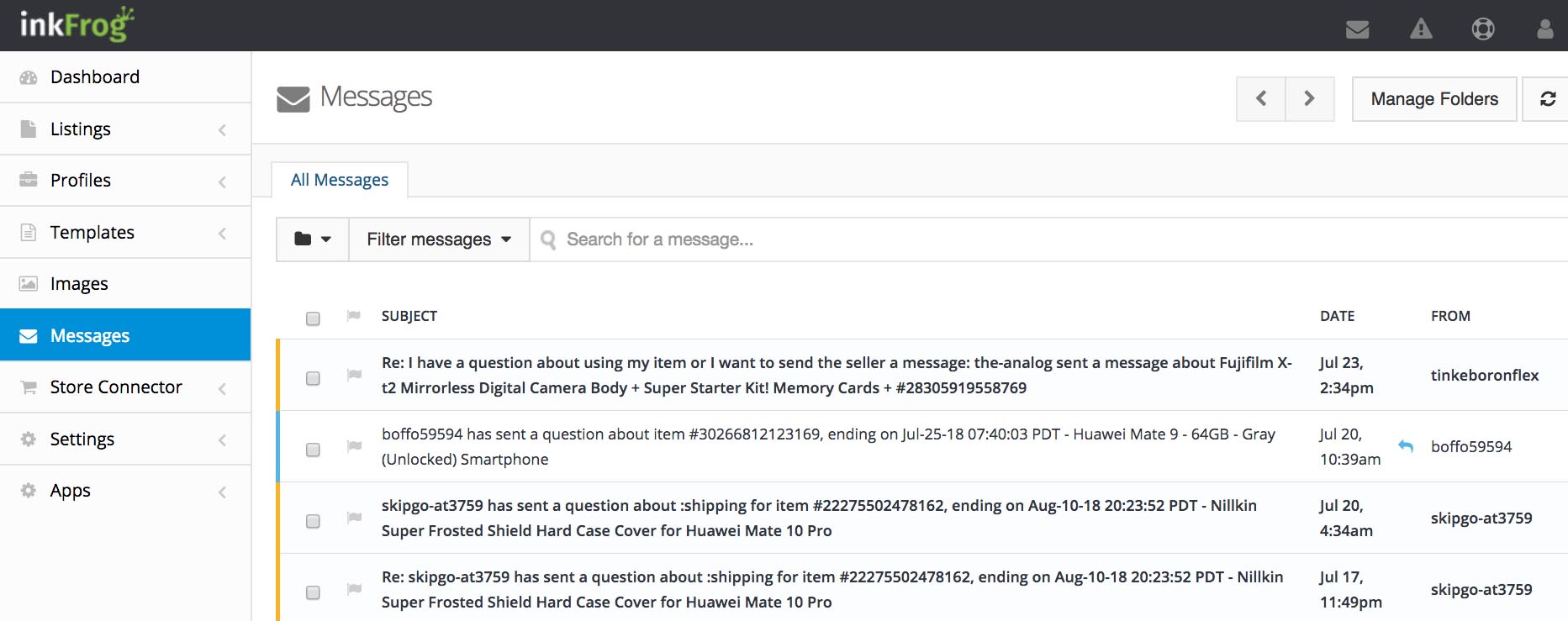
Only contact through the eBay message system, either via eBay or inkFrog.
Intellectual property theft. Profiting from others' ideas or intellectual property is forbidden on eBay. This means that you can't use another seller's photographs or item descriptions. It also means that you can't offer knock-off goods that are clones (or fakes) of legitimate products. Do any of these things and your selling will be restricted.
Listing banned items or committing a crime. There are laws about items that can't be freely bought or sold, and eBay rules on banned and restricted items that add further to this list. There are also laws that prevent you from saying certain things to other people—threats and harassment are good examples. Violate the law or any of eBay's product or communication safety policies and your selling will be restricted.
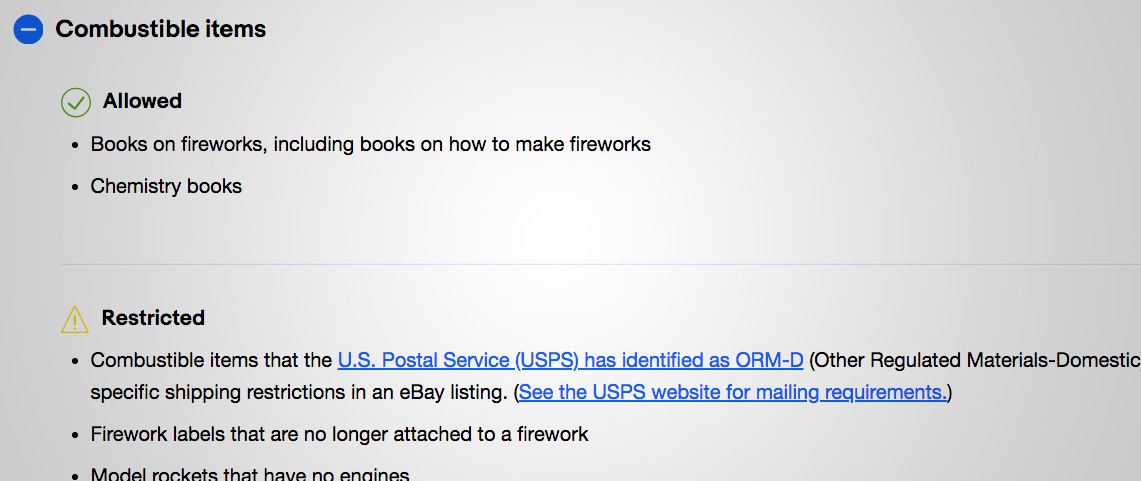
Study eBay's banned and restricted items policy for your niche, then abide by the rules.
Listing inventory that's new for you in large volumes. eBay knows, more or less, what you sell. If you sell a thousand pairs of socks and mittens , then suddenly list hundreds of thousands of dollars in diamonds, iPhones, or other high-fraud products for the first time, without a gradual transition, eBay may assume that your account has been compromised by fraudsters, and may restrict your selling.
Failing to pay eBay. When you sell on eBay, you incur fees, which are then billed to you. Fail to pay your fees in a timely manner and your selling will be restricted.
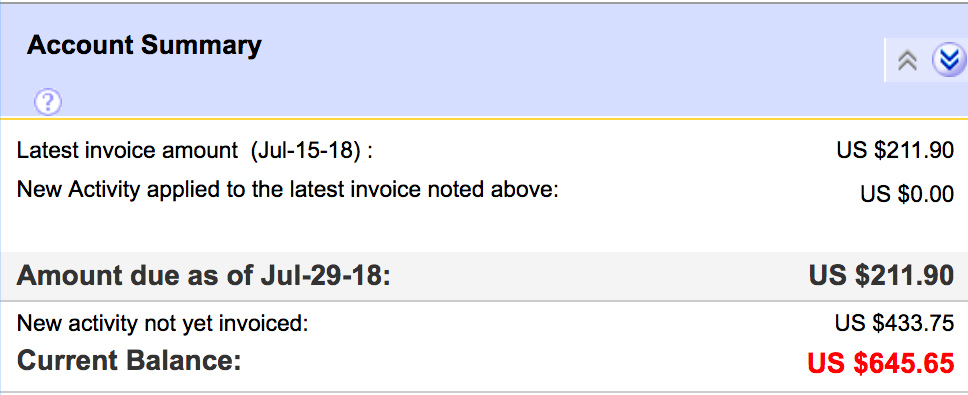
Accidental failure to pay eBay fees is a common reason for temporary suspensions.
The list above isn't comprehensive, but it gets us a lot of the way there. A ten-second summary version runs something like this. On eBay, if you want to continue to sell and grow, don't:
Fail to deliver
Fail to satisfy customers on the first go
Trade outside of eBay
Give shoppers ways to reach you outside of eBay
Steal images, listings, or ideas
Sell fakes or knock-offs
Break eBay rules
Break the law
Give the impression that your account's been hacked
Fail to pay your selling fees
It's not uncommon for new sellers to dislike one or several of these rules, but eBay's effectiveness as a marketplace (and sellers' ability to profit by selling on eBay) is dependent on trust. Everyone benefits so long as buyers and sellers alike trust the eBay marketplace.
All of the above practices put trust at risk, so eBay restricts sales or suspends sellers entirely when they occur. So even if you find some of these rules draconian, find ways to sell on eBay without breaking them. Millions of sellers already have!
How to Reverse a Restriction or Suspension
If you didn't find this list soon enough, you may find yourself on the wrong end of selling restrictions or a suspension. If your restriction results from a failure to pay fees, then the solution is easy—log into your seller account, ensure that your payment method is up to date, and pay your fees.
In other cases, things get more complicated. How do you go about reversing another type of restriction?
The simple answer here is that you'll need to contact eBay, come to understand what you did wrong, request reinstatement or the removal of restrictions, and follow the steps you're given by eBay to bring your account back into good standing. Start at eBay's holds, restrictions, and suspensions page and read the information there.
Then, scroll to the bottom of the page and use the contact options to reach out to eBay and ask for a reversal.

Visit the end of the holds, restrictions, and suspensions page for contact options.
You may be asked to provide various forms of identification, to sign documents, or to take other steps that eBay feels are necessary to ensure that you are who you say you are, that eBay knows who you are, and that you're an asset, rather than a liability, to eBay and to eBay shoppers.
The more complicated answer adds to this two caveats:
There are no guarantees. Your selling privileges are entirely up to eBay—and there is no requirement that they reinstate sellers following a restriction or suspension. For this reason, it's best to be humble and helpful as you try to go about restoring your selling privileges.
Registering a new account is a bad idea. eBay is surprisingly good at identifying sellers that register new accounts. Remember, they have tons of data on you—email, mailing, and IP addresses, cookies and browser identification, phone numbers, payment methods, product lines, listing content, and more. Get caught re-registering after a restriction or suspension and you're unlikely to ever be reinstated.
For these reasons, at the end of the day, it's best to follow the process that eBay provides to you, even if it seems frustrating or slow.
Even better, go over the list of don't-dos above and take them to heart before the worst happens—then work hard to ensure that you're never restricted or suspended in the first place!
Join the Newsletter
Get started for free today!
Try it free
Join the 200,000+
using inkFrog!




